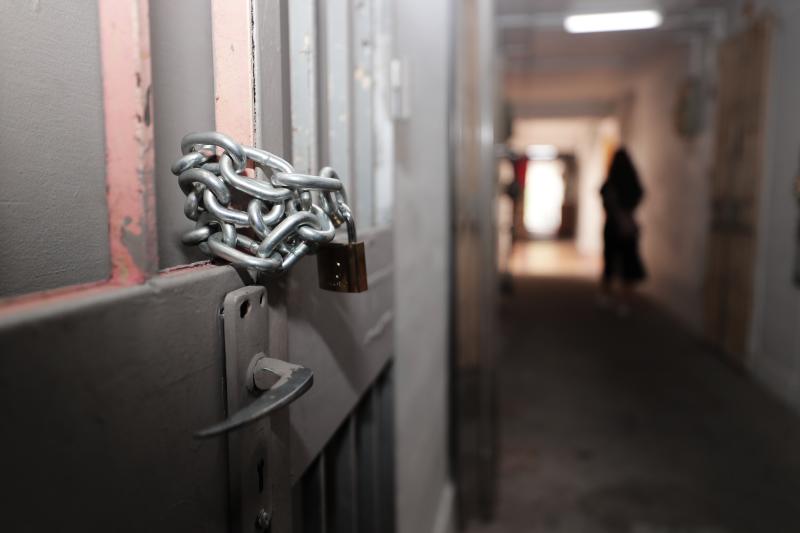Parliament: Family of girl in Chin Swee Road murder case said she was in relatives' care, says Desmond Lee
Sign up now: Get ST's newsletters delivered to your inbox

The Chin Swee Road flat where the remains of the girl were found. The case gripped Singapore, as the toddler's death was not detected for five years.
PHOTO: ST FILE
Follow topic:
SINGAPORE - The family of the two-year-old girl who was allegedly killed by her parents - and whose remains were found in a pot in a Chin Swee Road flat - had told social workers and staff from government agencies that she was being looked after by relatives.
Mr Desmond Lee, Minister for Social and Family Development, said in a parliamentary reply released on Monday night (Oct 7): "Based on what the family members had said at that time, and the interactions that the family had with the different agencies, the officers and social workers did not suspect that the child had gone missing or had come to any harm.
"A two-year-old child will generally have no interaction, on a regular basis, with agencies."
Mr Lee said that more details of the case will be given in court, adding that what the family members said and did in their interactions with each of the different groups over the years is relevant to ongoing investigations and criminal proceedings. Hence, he cannot go into specific details.
Mr Lee was responding to four MPs who asked about the case which gripped Singapore, as the toddler's death was not detected for five years.
Workers' Party Non-Constituency MP Daniel Goh asked why government agencies and social service groups were not aware that the child was missing for five years.
Fellow NCMP Dennis Tan asked if the girl's birth was registered and why government agencies failed to detect the child's absence from educational and other records despite the absence of her death certificate.
Mr Christopher de Souza (Holland-Bukit Timah GRC) and Mr Chong Kee Hiong (Bishan-Toa Payoh GRC) had similar questions. In particular, Mr Chong wanted to know if the Ministry of Social and Family Development (MSF) has ways to detect potential child abuse as early as possible, especially in cases where parents are not cooperative.
The girl's parents were charged in court on Sept 17 with murdering their two-year-old daughter. The couple, who are believed to have at least three children, cannot be named due to a gag order.
Their other children are under stable alternative care arrangements, the MSF said previously. The ministry had also said it would continue to provide the necessary support to ensure their safety and welfare, and "review how the network of agencies and community organisations can be further strengthened".
The couple are both remanded for psychiatric observation and they are due to return to court later this month.
In the written reply on Monday, Mr Lee said that the Immigration and Checkpoints Authority has confirmed that the child's birth was registered.
Over the years, the family was in contact with various government and community agencies. These include the MSF's Social Service Office (SSO), Child Protective Service which comes under the MSF, Home Team agencies, the Ministry of Education, the Early Childhood Development Agency (ECDA) and family service centres.
These interactions were for various reasons, such as financial assistance, childcare issues, education and pre-school matters, Mr Lee said.
He said that the family had previously approached the SSO to apply for financial assistance.
The SSO had also linked the family up with a family service centre to help improve the family's well-being.
The family also had previous interactions with the Child Protective Service, which determines whether the children in a family with safety concerns are adequately provided for, and works with the family to put in place a plan to address the concerns.
The ECDA engaged the family as part of the pre-school outreach programme, which aims to reach out to lower-income families with children not enrolled in pre-school.
It engages the caregiver or parents on the importance of pre-school education, helps facilitate the enrolment of a child in a pre-school and refers the family to other help agencies if necessary.
If the family is uncontactable despite numerous visits, the ECDA and outreach agencies work with community partners to try to engage the family when it is more receptive, Mr Lee said.
As for education, the MOE adopts several measures to contact parents whose children do not participate in the Primary 1 registration exercise, the minister said.
These include sending reminder letters and offering assistance to place the children in primary schools.
When there is no response to these letters, the MOE sends liaison officers to visit the family's homes. If a child is not staying with the parents, the ministry continues to work with various agencies to try to contact the caregivers of the child, he said.

